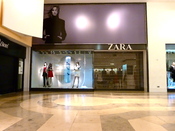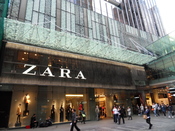Module 1 Session 3 Exercise 2: Vertical Integration vs. Outsourcing
Prepared by Prashant Wadkar
Part A
How is Zara organized with respect to its vertical integration and outsourcing decisions? What governance structure does it appear to follow? Support your conclusions with reference to details of the Zara case and the Ferdows reading.
Answer
I believe Zara has very intentionally integrated itself vertically to a high degree. It seems this is an outcome of the sudden and bitter order cancellation experience Amancio Ortega encountered in 1975 from a German wholesaler. The company always wants to control what happens to their product until the customer buys it. This includes complete control over design, production, delivery to retail outlets and finally to the customer. No dependency on an external agency enables Zara to start right from the concept and to deliver the product to the customer in just 3 weeks + 2 days at the maximum.
This business structure emphasizes on "fast fashion" and the entire business process is tuned to ensure the maximum 3 weeks + 2 days concept to delivery time which sounds like fantasy to the ears of the competition. For accomplishing this goal a greater goal of overall efficiency is adopted and optimization in individual processes is deliberately ignored. Conceptualizing new designs, utilizing smaller but more frequent batches of production, generously sparing factory capacities to rapidly scale-up when required, shipping the garments on the hangers/racks and with price tickets on, deploying user friendly and reliable POS equipment PDA ordering method are just a few accelerators to their speed of delivery. Part B
How does Zara's situation support, or not support, its supply chain strategy? Refer to specific details of Zara's operations, and concepts developed in Hayes et al (see session notes for summary of Hayes).
Answer
Zara's situation definitely supports their supply chain strategy. No or minimal outsourcing, i.e. vertical integration brings in their overall efficiency to deliver faster ever than anyone else and this is such a key in the volatile fashion business. Zara owns most of its suppliers right from for the materials for making the clothes, dying the clothes, production factories, logistics, distribution and also the retail stores. This allows them an extreme flexibility over the schedules and outputs. Also they always aim for small batches even allowing short supply at times. All this strategy cascades in to extremely quick delivery of high SKU low volume products and also reduces eventualities of off-season discount sales (reduced margins). Zara's business strategy is all about maintaining the rhythm. I conclude that vertical integration is the way to go for Zara's successful business model. Part C
Is Zara organized properly with respect to vertical integration or outsourcing? What changes, if any, would you recommend? State the reasons for your recommendations.
Answer
Zara has almost and perfectly balanced itself as a vertically integrated company. However in my opinion an organization should always think of the worst and should work for mitigating the risks. This way I would like Zara to look at the following 2 points:
1.
Their single massive distribution center (DC) will continue to grow larger as they are growing (on an average one per day new retail outlet somewhere in the world!) it will certainly add to the complexity of the DC. Since they own their factories and since their production batches are small they may want to look at shipping the products directly from the factories or at least split the DC in to more than on center based on the regions or whatever else it might be appropriate.
2.
Their POS systems are simple and proven however they seem to be already outdated as far as the support functions are concerned. Although their supply/support partners of the system have assured them that they do not intend to make any major changes affecting Zara's ability to use the system Xan Salgado has not been successful in getting that assurance inked as a clause in their contracts. Zara must realize that all good things are to come to an end one day and they should already have a KISS (keep it short and simple) replacement plan for these highly successful POS systems.


